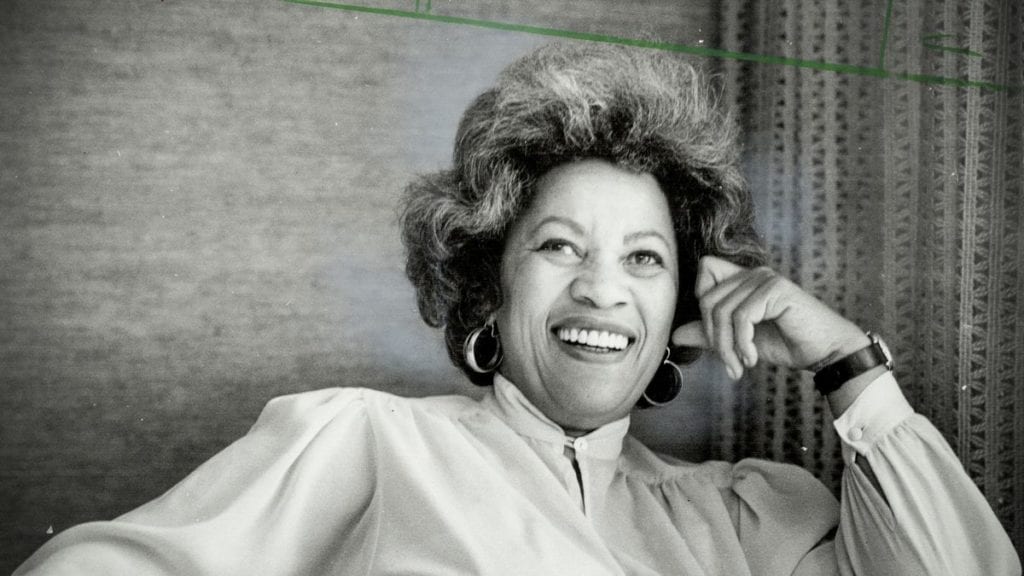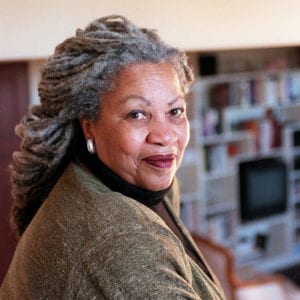The publisher tweeted a quote from the author: “We die. That may be the meaning of life. But we do language. That may be the measure of our lives.”
We are profoundly sad to report that Toni Morrison has died at the age of eighty-eight.
“We die. That may be the meaning of life. But we do language. That may be the measure of our lives.”
February 18, 1931 – August 5, 2019 pic.twitter.com/DWnElCpMKc
— Alfred A. Knopf (@AAKnopf) August 6, 2019
Tributes have poured in from many of her admirers, including Barack Obama, Oprah Winfrey and Roxane Gay.
Toni Morrison 🙏🏾 pic.twitter.com/nVjs88kTeg
— Oprah Winfrey (@Oprah) August 6, 2019
Morrison was the recipient of the Pulitzer prize, the Légion d’Honneur and a Presidential Medal of Freedom, which was presented to her in 2012 by then President Barack Obama.
She was one of very few writers who gained both commercial success and critical notoriety. In 1993, she became the first African American woman to win the Nobel Prize for Literature.
She was born in Lorain, Ohio in 1931, a small industrial town twenty-five miles west of Cleveland, during a time where public lynchings of black people was not uncommon.
Her legacy as a woman who fostered a generation of black writers, and writers of colour, grew out of this early childhood, and her environment informed much of what readers came to see and feel from her earliest works, including ‘The Bluest Eye’, ‘Sula’ and ‘Song of Solomon’.
RIP Toni Morrison. This is a devastating loss to the world of words, to our understanding of power and it’s reach, to the cultivation of empathy, to rich, nuanced, elegant storytelling. Her work was a gift to every one who had the pleasure of reading her.
— roxane gay (@rgay) August 6, 2019
In his review of her first novel in 1970, John Leonard said Morrison’s writing was executed “with a prose so precise, so faithful to speech and so charged with pain and wonder that the novel becomes poetry.”
Morrison’s family shared a statement yesterday, saying, “Although her passing represents a tremendous loss, we are grateful she had a long, well lived life. While we would like to thank everyone who knew and loved her, personally or through her work, for their support at this difficult time, we ask for privacy as we mourn this loss to our family.”
In her acceptance speech after her Nobel win, Morrison warned of the dangers of “oppressive language [that] does more than represent violence; it is violence; does more than represent the limits of knowledge; it limits knowledge.”
Toni Morrison was a national treasure, as good a storyteller, as captivating, in person as she was on the page. Her writing was a beautiful, meaningful challenge to our conscience and our moral imagination. What a gift to breathe the same air as her, if only for a while. pic.twitter.com/JG7Jgu4p9t
— Barack Obama (@BarackObama) August 6, 2019
Uncannily apt, for a time we currently live in, where the president of her country continues to espouse violence through his words. In 2016, she penned her thoughts in an essay for The New Yorker, telling readers the superiority complex white people had created over centuries about the colour of their skin was disappearing, and it was causing a panic.
“There are ‘people of colour’ everywhere, threatening to erase this long-understood definition of America. And what then? Another black President? A predominantly black Senate? Three black Supreme Court Justices? The threat is frightening.”
Her chronicle of the African-American experience has changed an unimaginable number of lives and will continue to alter the internal landscapes of those yet to come.
Perhaps her most widely read book, ‘Beloved’, was published the year I was born and won her the Pulitzer. Her books centre on characters she wanted to see as a reader, but could not see in what was available at the time. They explore race, gender and trauma through a tender, searing, powerful voice.
“I had no reason, no encouragement to be a writer,” Morrison said in a speech in 2007 at the Academy of Achievement Awards. “There was something I wanted to read about and I couldn’t find it. I thought everything I needed to read or wanted to read had probably been written by somebody somewhere. At some point, I discovered there wasn’t. There was a silence, an absence, a vacancy about somebody I knew, which was a young black female.”
https://www.instagram.com/p/B005cBDBPg8/
Morrison authored 11 books as well as children’s books and essays. She is one of the few thinkers and writers who has given me courage to centre myself, to write about my own vulnerability, and to exercise my ability to speak for myself. That is a strength that all women, regardless of colour, sexuality or background, need to do. She has inspired us all to become better, stronger, more empathetic human beings. As author Elizabeth Gilbert writes on Instagram: ” She knew who she was. She knew WHAT she was.”
As New York Times obituaries writer Margalit Fox writes today, “Her plots are dreamlike and nonlinear, spooling backward and forward in time as though characters bring the entire weight of history to bear on their every act.”
The only good thing to come out of the very sad death of a literary person is the dedication pieces to come out from other writers.
In the forthcoming days, I will look forward to reading them and reminding myself of the often under-acknowledged, transcendental power of language to heal us, to empower us, to guide us towards a better world.



